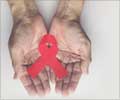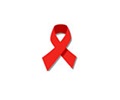AIDS/HIV - Glossary
Transfusion: Delivery of blood or a blood component into the bloodstream.
Interaction: Interactions may increase the response, decrease the response, cause toxicity or completely change the response expected from either substance.
Injection: Using a syringe and needle to push fluids or drugs into the body; often called a "shot". The needle is positioned into the tissue under the skin (subcutaneous), into a vein (intravenous), or into a muscle (intramuscular).
Incubation: The time between infection by a pathogen and the appearance of disease symptoms.
Pregnancy: Growth of an embryo/fetus in the uterus.
Placenta: The organ that nourishes the developing fetus in the uterus.
Condom: A sheath that fits over an erect penis to catch semen during ejaculation.
Bacteria: A large group of single-cell microorganisms. Some cause infections and disease in animals and humans. The singular of bacteria is bacterium.
Clinical: Having to do with the examination and treatment of patients.
Antibodies: Protein produced by white blood cells which neutralize or destroy foreign proteins in the body (antigens). When infected with virus or bacteria, the body produces antibodies which destroy the invading microorganisms.
Intravenous: Into a vein.
Heterosexual: A person who is sexually attracted to a person of the opposite sex.














